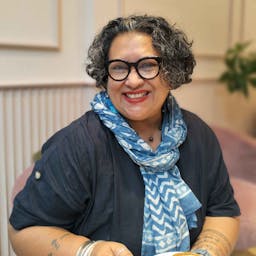Feminist Footsteps: A View from the Pacific Women's Triennial Conference: Gender Based Violence
Apr 28, 2021
Story









“This is about solutions of hope” said Ofakilevuka Guttebeil Likiliki, Director, Women & Children Crisis Centre, Tonga. Finding solutions in the context of gender-based violence which is the second priority theme of the Pacific Women’s Triennial Conference currently underway.
The session brought together experiences from the women’s rights movement, national women’s machineries and the faith community addressing priorities for response, prevention and partnerships across the 3 sub-regions of the Blue Pacific continent.
While the 2009 Family and Health survey in the Solomon Islands is outdated now it continues to provide important baseline evidence for the current and future work says Vaela Ngai Director, Ministry of Women, Youth, Children & Family Affairs, Solomon Islands: “We have just completed the review of our Family Protection Act, identifying gaps to include women with disabilities and also to create safe and accessible spaces for children and persons with disabilities.”
Partnerships through the SafeNet project she says brings together churches, civil society and public sector including counselling and service providers: “In 2018 we have begun the process of rolling this out to our nine provinces. This has been great learning, we have had to tailor the SafeNet model to each province to include community groups and leaders, including chiefs into the referral system.”
All members are bound by an MOU including protocols and commitments as well as the response and referral pathway “We are also in the process of finalizing a GBV database. The COVID19 pandemic has required us to quickly adapt the pandemic pathway during lockdown situations and this has included a SafeNet Facebook page.”
Response and Prevention go hand in hand according to Teretia Tokam, Coordinator, Kiribati Women & Children Support Centre. A programme on social citizenship education is working with teachers, school leaders and student to integrate human rights, social inclusion and EVAW in the school curriculum and teacher training courses. This is an important partnership role with the Ministry of Education and schools and is highlighting the need to invest in informal and formal education programmes she said.
Training for data collection is another vital partnership across all stakeholders added Tokam “We need to train those collecting the data and prepare those who will be interviewed”
Investment is training means all responders are not simply providing services but also accepting a human rights based approach in their work says Christina Stinnett, President, Chuuk Women’s Council, Federated States of Micronesia (FSM) who says found waves to weave her work as the Tongen Inepwinew Counseling Centre, the first crisis support centre for survivors of violence against women in the FSM into the national COVID response: “I am part of the Chuuk state counselling task force, ensuring communities understanding compliance with COVID19 health and safety measures as well as the services provided since the first centre was opened in March 2020. We have to be creative in reaching out to women, discreetly sharing information through the women’s dignity kits. This was an entry point to raising awareness of VAW as well as the services provided”
A national network involving church and community leaders and using an animation short they are creating awareness to men and women alike “These men are also holding other men accountable,” said Stinnett.
Challenging the patriarchy and holding male leaders accountable including those in church and faith community is a legacy of the Pacific women’s rights movement and organisations such as the YWCAs and women within the faith communities said Rev James Bhagwan, the General Secretary of the Pacific Conference of Churches (PCC): “Anything that results in violence, that perpetuates inequalities is a sin, we need to use the theological references in calling out violence as a sin. We must recognize that beyond the organizational structure we are talking about community of faith where we find perpetrators and victims, the community is involved”
The PCC he says also values partnerships to address the underlying issues of gender inequality which drive violence “recognizing that faith communities are not just target audiences but we are partners in this work and many of the partners in this work are women of faith who are challenging the inequalities. It is about codesigning ways to work together to engage with church leaders” said Bhagwan who also highlighted that national members of the PCC are already actively involved in progressing the work “Our role is to support their work such as addressing the ordination of women, bringing GBV into theological training. Our gender team is working on ensuring there is good decision making and working with church leaders on addressing the cultural and traditional drivers of patriarchy”
The Break the Silence Sunday, staged ahead of the annual 16 days campaign is a way to enable and show churches are engaging on the issue: “Include faith leaders in any programme you are developing, at national and local level” said Bhagwan.
Resources for the prevention and response to gender-based violence are vital given the depth and breadth for advocacy, prevention and response, peacebuilding to address all the different aspects of the work said Bhagwan highlighting that the more you engage with broader communities including faith communities, the more impact but also the more we will need resources “We cannot have a token budget, there must be material available at the community level. The funding must lead to sustainability in the work and not just relying on funding.”




